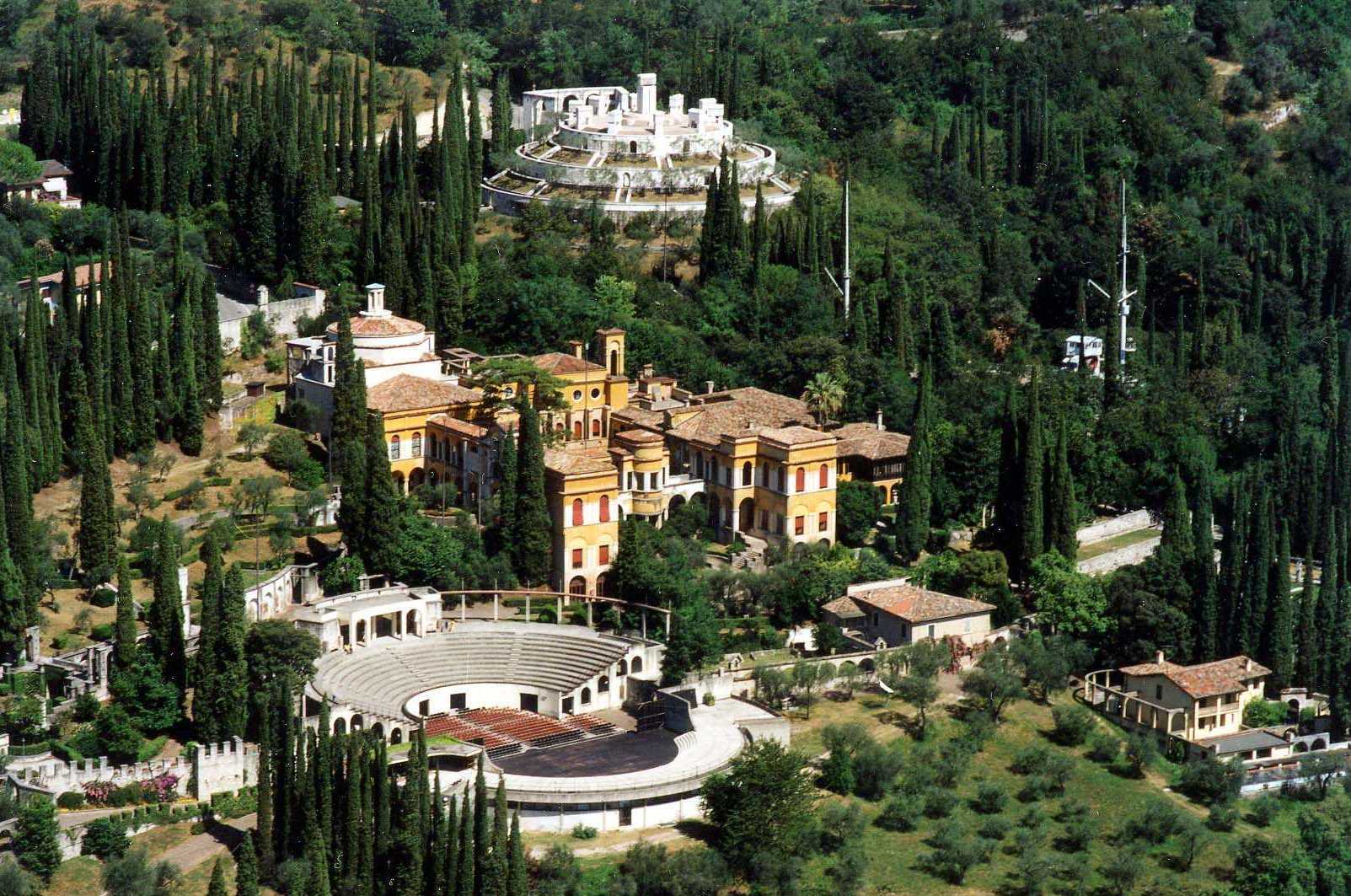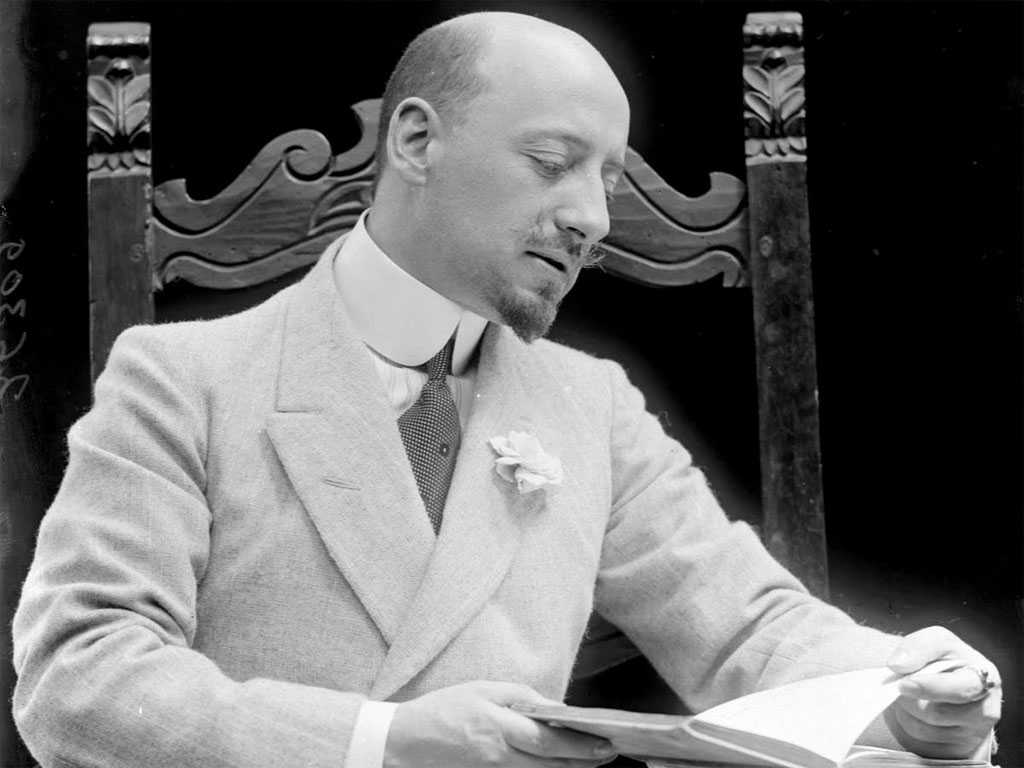TREVISO, Italy – Martino Zanetti, owner and president of Hausbrandt Trieste 1892 S.p.A., has donated the largest Italian collection of documents and letters by Gabriele D’Annunzio to the Vittoriale. Set on the shores of Italy’s Lake Garda in Gardone Riviera, Il Vittoriale degli Italiani (The Shrine of Italian Victories) was once home to the eccentric Italian writer Gabriele D’Annunzio (in the picture), who lived there from 1922 until his death in 1938.
An enthusiastic scholar of theatre, painting, architecture, music and various related artistic experiences, Martino Zanetti was captivated by the works of D’Annunzio at a young age and became the largest collector of documents relating to the author, such as original published works, historical critical texts on D’Annunzio and signed texts.
The more than 3,000 documents in the collection include the most important letters regarding his artistic growth and maturity and a signed first draft of “La Vita di Cola di Rienzo”.
Although Zanetti’s official role is a businessman, his life-long love for culture remains a primary feature of his personality. These two different sides of his character have never caused a conflict in his long personal experience.

In fact, it enhanced his expressive potential and enabled the entrepreneur Martino Zanetti to communicate “creatively” in all areas of his business, leading to an uncommon and unique atmosphere, particularly among employees. This approach, combined with the devotion generated in the people touched by it, gave rise to Martino Zanetti’s unusual and winning combination of business activities.
The owner of internationally important works by authors such as D’Annunzio, Shakespeare, Ben Johnson and Inigo Jones, Martino Zanetti is now donating his entire collection of documents signed by Gabriele d’Annunzio – more than 3,000 original documents, including letters from the author to his lovers, manuscripts and public speeches from the periods 1882-1883 and 1936-1938 – to the Vittoriale, believing they deserve to “live again” in the most appropriate of places, the poet’s final home.
This cultural heritage that was “hidden” until now will be donated to the Vittoriale to provide new stimulation and ideas for fans of the author who would like to learn more about the finest Italian exponent of currents of thought and European literary trends, including exaggerated sensualism, refined and paganistic aestheticism and a tendency to analyze social reality and predict its outcomes almost a century in advance.















